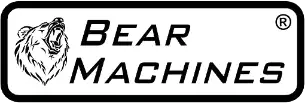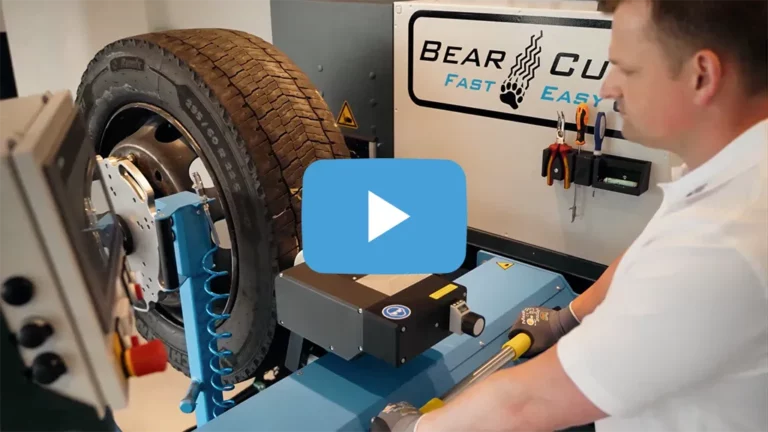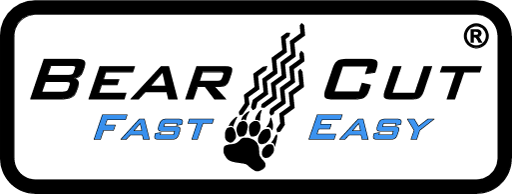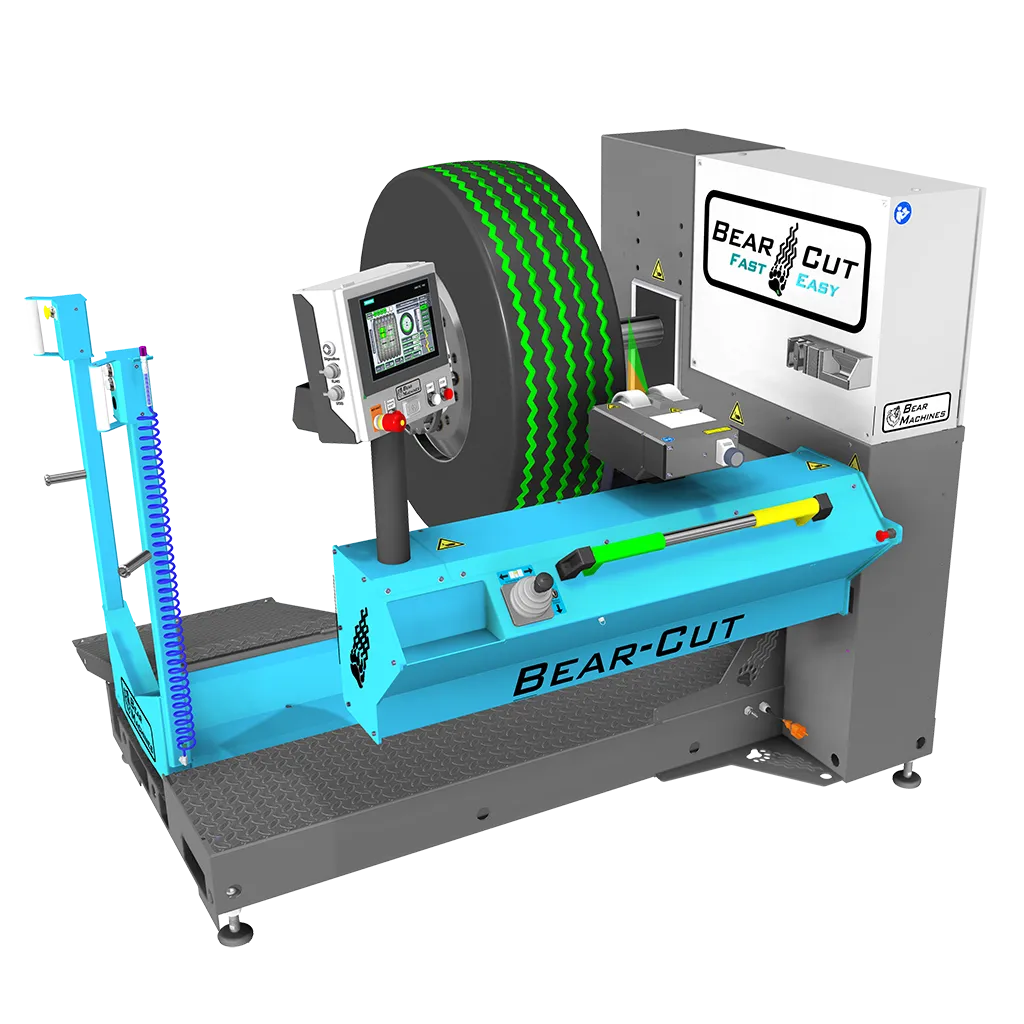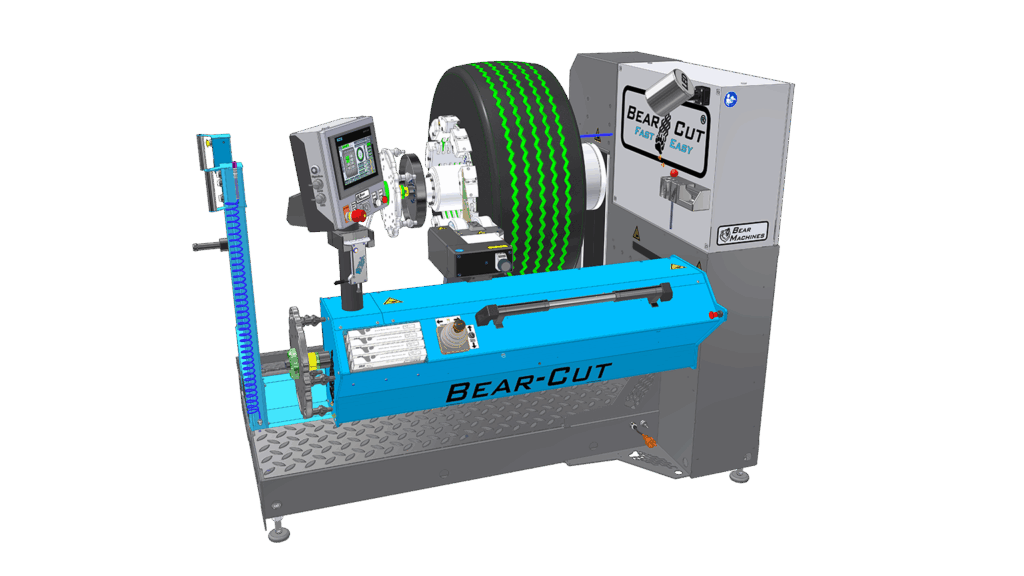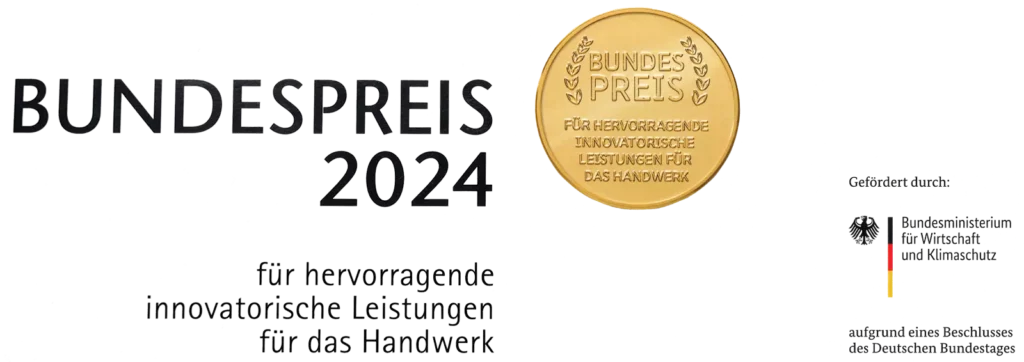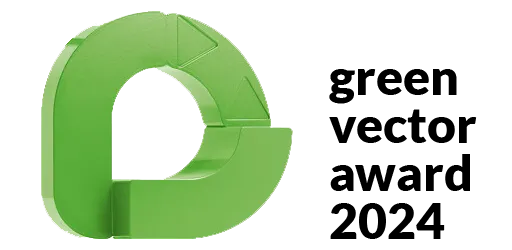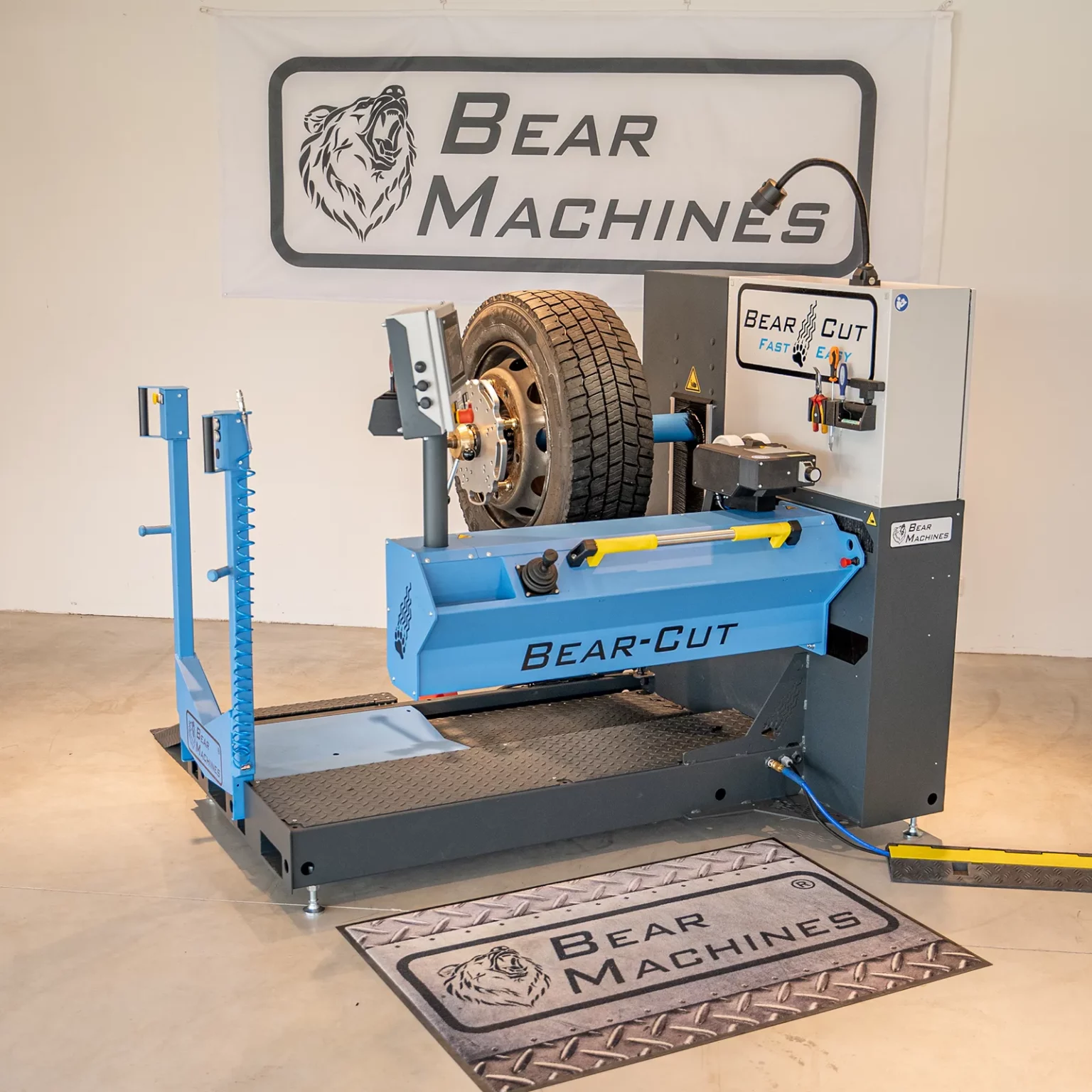
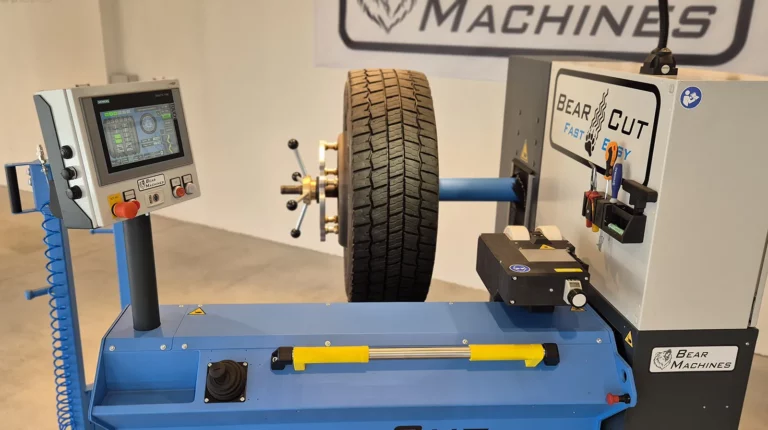
Bear-Cut:
Tire reprofiling
effortless, fast & sustainable!
Extending the life of your tyres and saving CO₂
Quick and easy regrooving (regrooving) of commercial vehicle tires with the regroovable label.
Life extension of at least 25 %
Regrooving a tyre and extending its life by at least 25% means buying fewer new tyres.
Positive for CO₂ balance and wallet
A regrooved tyre consumes less fuel, which has a positive effect on the CO₂ balance and on the wallet.
Bear-Cut.
Now with improved technology.
Bear-Expander
New clamping system:
Clamp tires with or without rims
Automatic Bear-Caliper:
Simply transfer the cutting depth to the control system
Software-Update:
Tires can be recut almost fully automatically
New loading method:
The tire can be loaded from the front—ideal for mobile use on a truck
What our clients say


Gerhard Röger
Stefan A. Eisenhofer Transporte


Alexander Schuon
Alfred Schuon GmbH
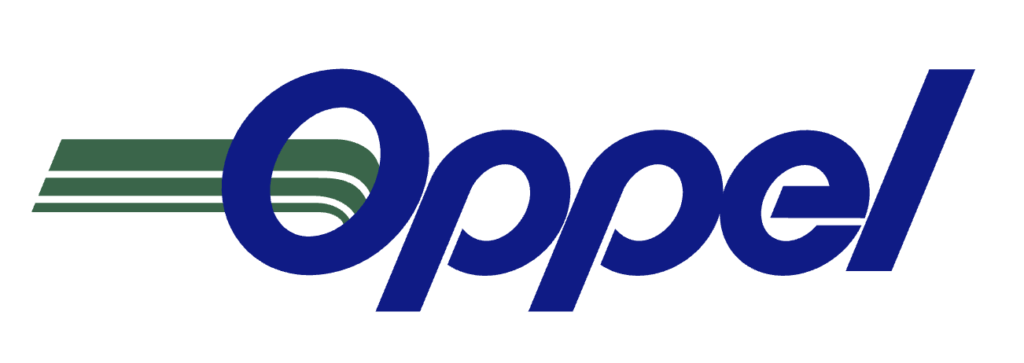
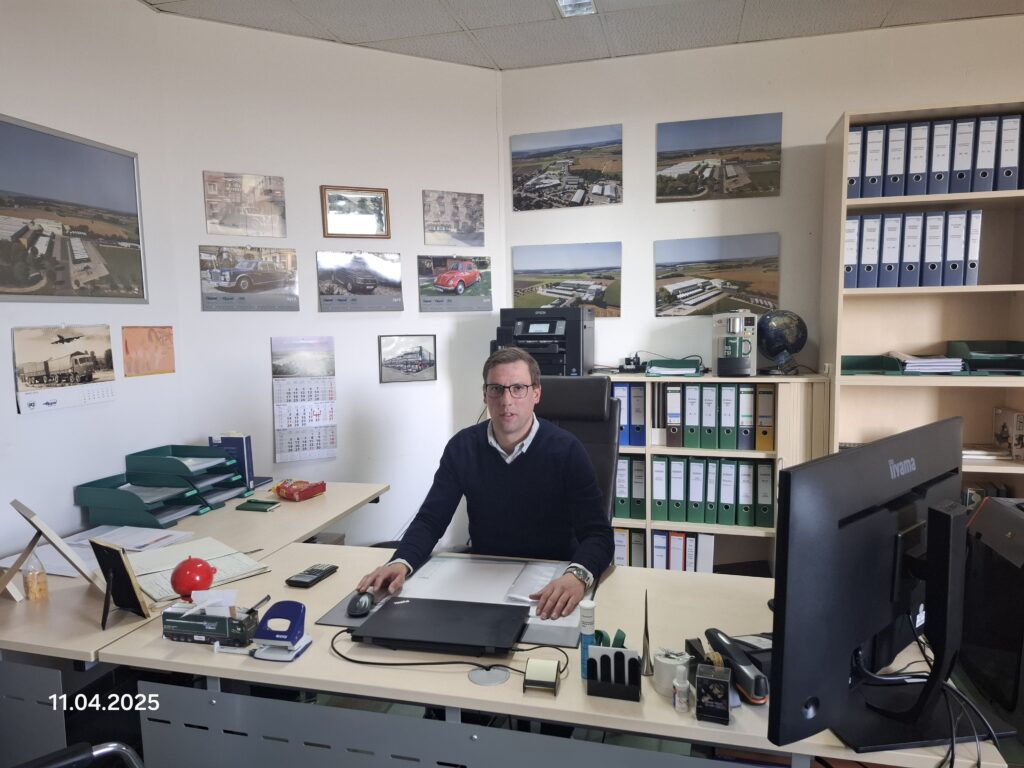
Andreas Oppel
Spedition Oppel GmbH

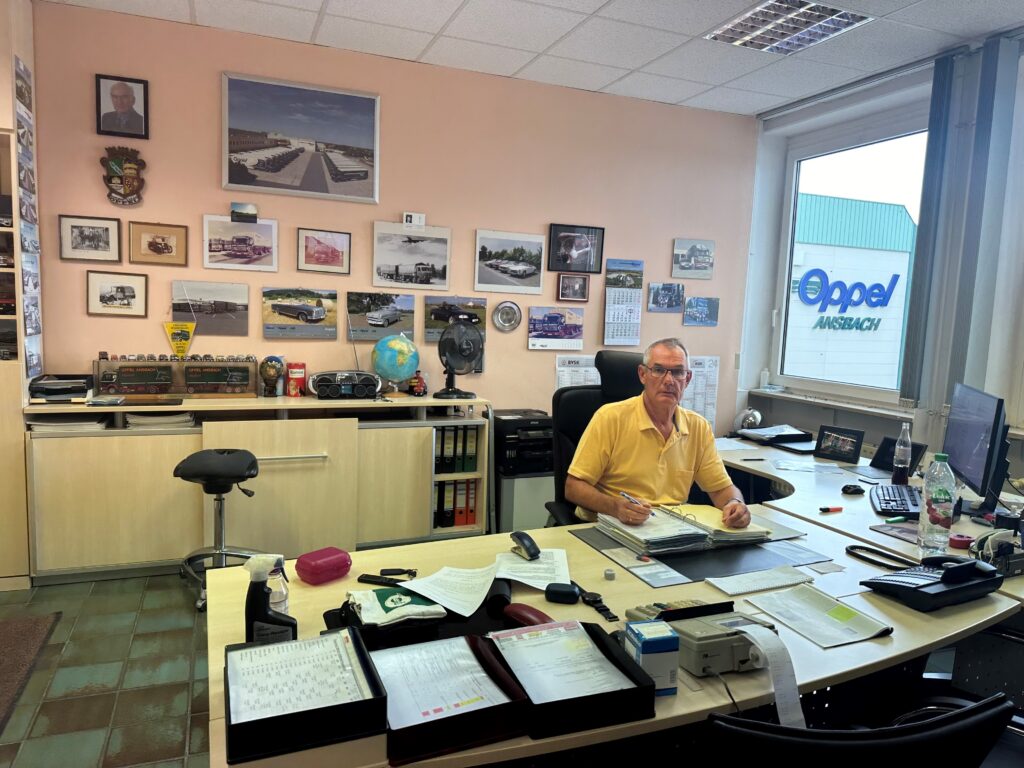
Thomas Oppel
Spedition Oppel GmbH

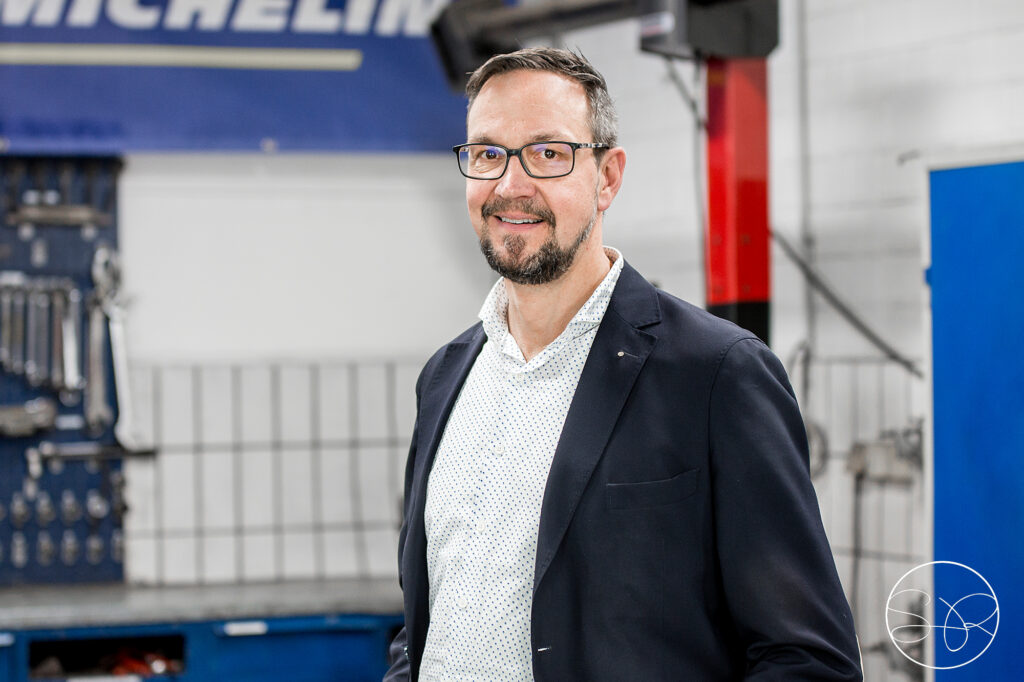
Peter Lüdorf
Gummi Berger Gruppe


Stefan Eisenhofer
Stefan A. Eisenhofer Transporte

Georg Wittwer
Wittwer Spedition & Logistik GmbH


Patrick Bröckers
spieker products GmbH


Dirk Werner
Verkehrsgesellschaft Kreis Unna (VKU)
approx. 13m groove is recut per tyre / 705 kg CO₂ is saved per recut tyre.
* The formula for the calculation of the CO₂ value is composed as follows
Mark Berendsen
Managing Partner
With our Baer-Cut machine, we create efficiency and many advantages for hauliers and fleet managers who have commercial vehicles in use. By continuing to use existing tyres, our customers save money. At the same time, this is sustainable and ensures a better environmental balance.
Mark Berendsen
